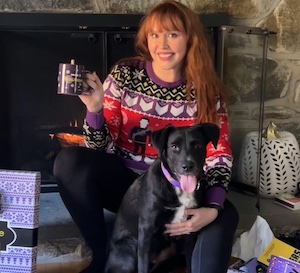"I have been on house teams, teaching and/or coaching improv at various theaters over the last decade or more. Obviously, there are many things that come to mind:
• Listen; not just to what was said but also what was unsaid. Listen with your eyes.
• Say “Yes and…”
• Build a physical world to play in.
• Have a strong relationship with your scene partner or strong opinion of them even if you don’t know them well.
• Resting the game or joke can be just as important as finding and hitting it.
• Find your why, what drives you, what is your philosophy to build rich characters.
• Explore your limits physically, mentally, surprise yourself.
All of these are helpful pieces of technique, but nothing improved me as a performer more than allowing myself a healthy dose of nihilism. Wait, let me explain.
When I was a new improviser, I would often sit back on my heels overthinking during shows. I cared too much. The more shows I did, the less I cared about my performance and the more I began trusting my teammates as we would freefall together. I once heard someone say, “you can’t ride a horse and watch yourself ride a horse.” And I think that’s true of improv. You will grow exponentially when you stop watching yourself and just experience it.
I get it. I’m telling you to stop caring and that isn’t always a choice… but what if you dared yourself to just try it?
Dare yourself to play for your teammates, to be in service to them instead of yourself. Dare yourself to follow your feet when you feel the bodily urge to jump in. Dare yourself to be stupid and free. Dare to make yourself laugh. Dare to dance on the edge of failure. Dare to play with love in your heart for every person you share the stage with and worship the gifts they share.
Here is the big secret: (as long as we are respectful of people’s safety, autonomy and identities) nothing we do at an improv theater or class really matters. Improv is ephemeral. There will always be another show or class or gig, so dare to freefall. Share that joyful feeling with everyone around you. Life is short, but improv is shorter – you might as well enjoy it. Chances are the audience will enjoy it more too."

